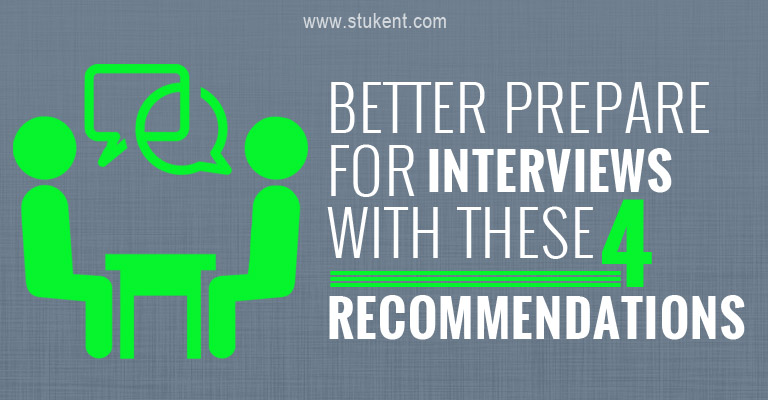Over the course of my career, I’ve interviewed many entry-level candidates for digital marketing jobs. Going into these interviews, I don’t expect candidates to know the ins and outs of online marketing. Instead, I’m looking for candidates to show me, both through their answers and body language, how much getting this job would mean.
The tactical side of online marketing can be taught, but passion for your job is something that you either have or you don’t. What do I mean by passion? Here are a few characteristics:
- You see all tasks as learning opportunities, no matter how menial they may seem
- You question and analyze your work in order to always be improving
- You aren’t afraid to take an opposing view because you are confident in your rationale
- You are genuinely excited about industry developments
Granted, you can’t fully tell from the interview if candidates will have passion for their jobs, but there are signs. In this post, I’ll be highlighting four recommendations I have for entry-level candidates when interviewing. In fact, these recommendations are prevalent to candidates of all experience, but especially when breaking into the industry.
Know Enough To Speak To The Position For Which You Are Applying
As I stated previously, I don’t expect candidates to know all the specifics of the position. I do expect that they will be able to speak to the job requirements and industry at a high level.
As an example, I once interviewed a candidate for an entry-level pay-per-click (PPC) position. The first question I asked was “What interests you about PPC?” I wasn’t able to get a clear answer from the candidate, even after I rephrased the question to tell me just one item of interest. How could I expect this candidate to show passion for his job if he didn’t even know why he wanted to be in this field? Needless to say, the interview ended shortly thereafter.
Even more so, not being able to speak to the position shows a lack of preparation on the candidate’s part. How can candidates complete quality work in a timely manner if they aren’t prepared for the interview? Being unprepared also shows a lack of respect to the interviewer. This person is taking time out of his/her day to interview the candidate. Make sure that time is worthwhile.
Be Truthful
In our attempt to make resumes attractive to companies, sometimes embellishment occurs. For example, a candidate may say that he has run a Google AdWords account when in reality, he conducted keyword research and wrote ad copy, but didn’t manage on a day-to-day basis. I don’t find anything wrong with this embellishment as long as it doesn’t go overboard. I understand that candidates want to play up what they’ve done. The problem becomes when candidates aren’t truthful about their limitations.
If I were to see that a candidate has run an AdWords account, I would ask follow-up questions, such as:
- What were the goals of the account?
- How did you segment your individual campaigns?
- What tools did you use to research keywords?
I’m not looking for the most specific answers in the world, but I do want to know some detail that shows me how you approached the account. I also want you to be honest. If you know the account goals and were responsible for keyword research, but not campaign segmentation, let me know! Being honest tells me that you are comfortable admitting your limitations, which leads to my next recommendation.
Explain What Makes You Nervous About The Position
Most entry-level candidates are right out of school and have never held a full-time job. Transitioning from school to a career is a huge (and potentially scary) life step. I want to know what about the position worries them so we can set proper expectations.
One of the most common answers I receive is fear of speaking with clients. It’s one thing to speak with your own boss, but to explain processes and results to a paying customer can be intimidating. I’ll set the expectation with candidates that client interaction won’t occur for a while (usually at least a year). This way, they know they will have ample time to grow their own skills.
Asking this question also shows that the company cares about the potential employee’s success. In every job I’ve had, entry-level employees have always had a mentor who was available for on-demand questions and weekly meetings. Companies want to see their employees grow and are willing to put in the time and effort to make that happen. It all starts with honest feedback during the interview.
Share Where You Find Your Information
I always like to ask candidates, entry-level and experienced, what blogs they read and where they learn about industry trends. Most digital marketing fields have at least three or four core information sources. Being in PPC, I tend to get my news from:
- PPC Hero (this blog is run by my employer, Hanapin Marketing)
- Search Engine Land’s paid search section
- Inside AdWords – Google’s official AdWords blog
It’s always a red flag when candidates can’t name any sources. Going back to the first point, it shows that candidates haven’t taken the time to properly research the position and associated industry. To a certain extent, it also shows the inability to adapt. Digital marketing is always evolving and requires specialists to constantly review industry sources for the latest trends and ideas. Adaptability is a requirement of the job.
Final Thoughts
At the end of the day, a successful interview requires that you be honest and have a strong desire for the position. If you don’t have these characteristics, there are many who will. Breaking into the digital marketing industry can be a challenge, but hopefully, these four recommendations will help as you interview.






